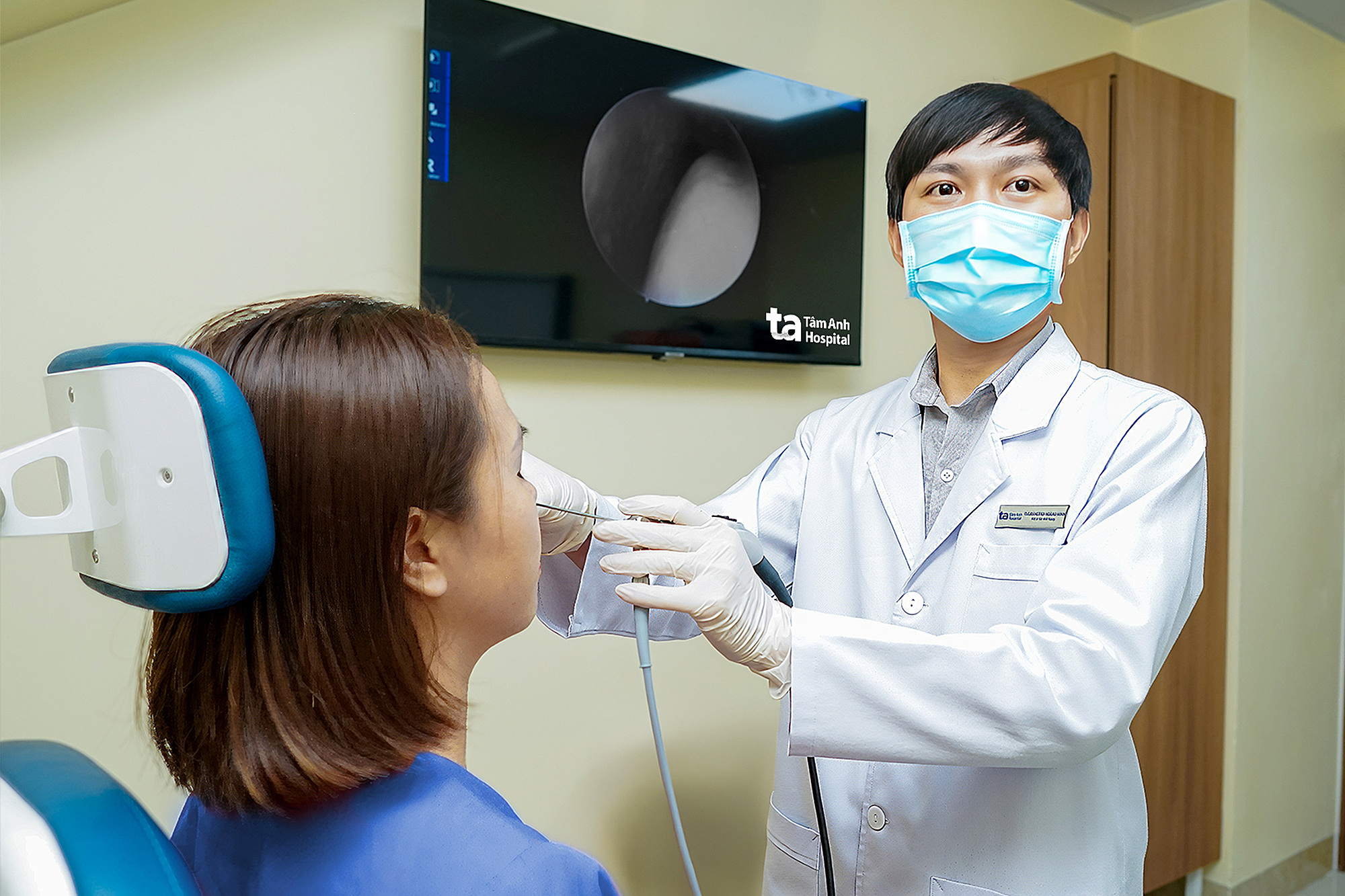Five days after undergoing rhinoplasty at a cosmetic clinic in Ho Chi Minh City, Thuong noticed a strange odor and returned to the clinic, where she was prescribed medication. A month later, her symptoms worsened, including persistent nasal congestion, discharge, and bad breath. She then sought treatment at Tam Anh General Hospital in Ho Chi Minh City. An endoscopic examination using specialized ENT equipment revealed a piece of gauze packing (meche) lodged deep within her right nasal cavity.
Doctor Huynh Hoang Minh, from the ENT Center, explained that dead epithelial cells are normally expelled along with nasal discharge. When a foreign object is present, this drainage process is obstructed, causing these cells to become trapped and decompose within the nasal cavity, producing an unpleasant odor. The moist environment combined with accumulated mucus creates a breeding ground for bacteria, leading to prolonged inflammation and the risk of widespread infection.
 |
Doctor Minh performs a nasal endoscopy on Thuong. Photo: *Tam Anh General Hospital* |
Doctor Minh used specialized instruments to remove the gauze. "The gauze packing had changed color from its original white and was saturated with pus, indicating a prolonged infection," he explained, adding that the gauze was likely left behind during Thuong's rhinoplasty.
The medical team drained the pus, cleaned Thuong's nose, provided home-care instructions, and prescribed medication to treat the inflammation. A week later, during a follow-up appointment, Thuong's nasal discharge and foul odor had improved.
Doctor Minh noted that textile materials (cotton, medical gauze) are surgical items easily left behind in patients. Initially sterile, they can become breeding grounds for bacteria, causing infections. Gauze left in the nose for extended periods can cause tissue necrosis, sinus blockage, sinusitis, and the risk of inhaling the foreign body into the trachea, leading to airway obstruction and breathing difficulties. Surgical teams must count gauze multiple times before and after every procedure to prevent such incidents.
Individuals experiencing foul-smelling nasal discharge or breath should consult an ENT specialist for an endoscopic examination to determine the cause and receive prompt treatment.
Uyen Trinh
*The patient's name has been changed.
| Readers can submit questions about ear, nose, and throat conditions here for doctors to answer. |












